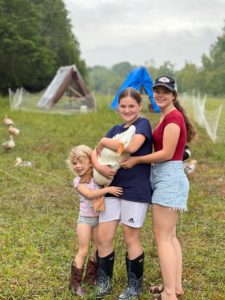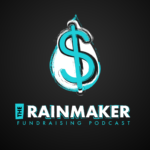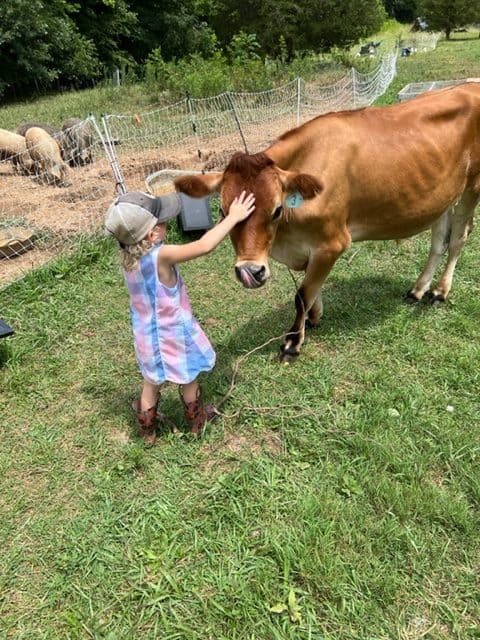
Over my 25-year fundraising career I’ve often heard it said, “fundraising is like farming — you plant the seed, allow time to take hold, and then eventually reap the harvest.”
But as Joel Eaton, Founder of Preface and I discussed, there are a multitude of other ways that fundraising and farming are similar. In this conversation, you’ll hear us tackle those issues.
Since Joel and I are both experienced fundraisers and novice farmers, we felt at least somewhat qualified to have this conversation. Hope you enjoy it!
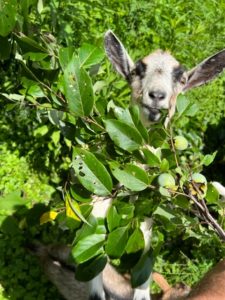
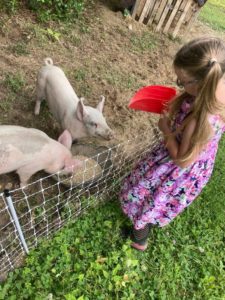
Here are the top similarities between farming and fundraising, according to two beginner farmers. 😉
- You have to prepare the land long before you’ll see any benefit. What I mean by that is, in fundraising, you have to build strength in your brand as a fundraising brand. You need to create preference in the mind of your supporters and the community at large, otherwise the community won’t respond when you begin making asks. In the same way, farmers have to prepare the land by ensuring their soil is rich, they have the right combination of nutrients, that the animals are well fed and cared for, etc.
- The farmer has to build trust with their animals, early and often. You’ll hear Joel and I both talk about our pigs, and what it’s like to build trust with them. In the same way (not comparing donors to pigs, I promise), fundraisers have to work consistently to build and grow trust with donors before anything of significance can happen.
- Great fundraising requires a high level of patience and experimentation to be successful. You have to have the willingness to take risks, try new things, and allow them to either succeed or fail. On the farm, life is all about patience and experimentation as well. The work always takes longer than we expect, and things rarely ever turn out the way you hope on the first attempt.
- Often you have to make out-sized investments in order to get even incremental successes. This is true for things like new donor acquisition. Organizations sometimes spend millions to acquire thousands of donors, only to have a few stick with them over time. Joel and I talked about how the process of making maple syrup is a lot like new donor acquisition. On the farm, you have to invest a ton of resources (time — a lot of time — money, effort) to tap the trees and drain the sap necessary to make maple syrup. But when you’re successful, you might go through five gallons of sap to get a few tablespoons of syrup. Sure, it’s sweet and amazing, but it’s a ton of work for a small initial payoff!
- No matter how well you plan, whether when farming or fundraising, there’s always another party that gets a choice in how things actually work out.
- This work — fundraising and farming — requires resilience. Our work is not complicated. But that doesn’t mean it’s easy either. In fundraising, we hear “no” all the time. That gets tiring. Campaigns don’t always work the way we intend. Or they work exactly as we intended, but donors simply don’t give as much as we hoped. Many things contribute to the work not working as well as we might hope. The same is true in farming. I can’t tell you how many times each week I feel like a complete and miserable failure on the farm.
- Just like the farmer, the fundraising leader’s role is caretaker and developer. You need to think beyond yourself and your personal goals and focus on caring for the entire development organization. You need to understand how the decisions you make every day impact everyone else on the team, your volunteers, your donors, beneficiaries, etc.
- Nothing is ever finished. This one is hard for me, and frustrates me daily. I, like many of you, am wired to check things off my list. To accomplish a lot. What I’ve learned here on the farm is that no matter how long I work, or how hard I work, the work is never finished. As I thought about how this compares to fundraising, I realized it’s similar. Even when we hit or exceed our goals, come the start of the new year (fiscal or calendar), the clock resets and we start all over again. Or just think about your work with a specific donor. When you get that big gift, that’s just the start of the next phase and cycle of the donor relationship, and you have to work as hard or harder to maintain the trust you’ve built, keep that supporter deeply engaged, and motivated to continue in partnership. Whether you’re farming or fundraising, the cycle and pace of our work can be overwhelming at times.
- You can do hard things. This was one of Joel’s key takeaways, and I LOVE IT. The idea that we humans are designed to do hard things, and we actually grow and thrive when we face and overcome challenge. So don’t shy away from the hard things. Lean into them, even if they frighten you. You’ll be amazed at what you can accomplish!

